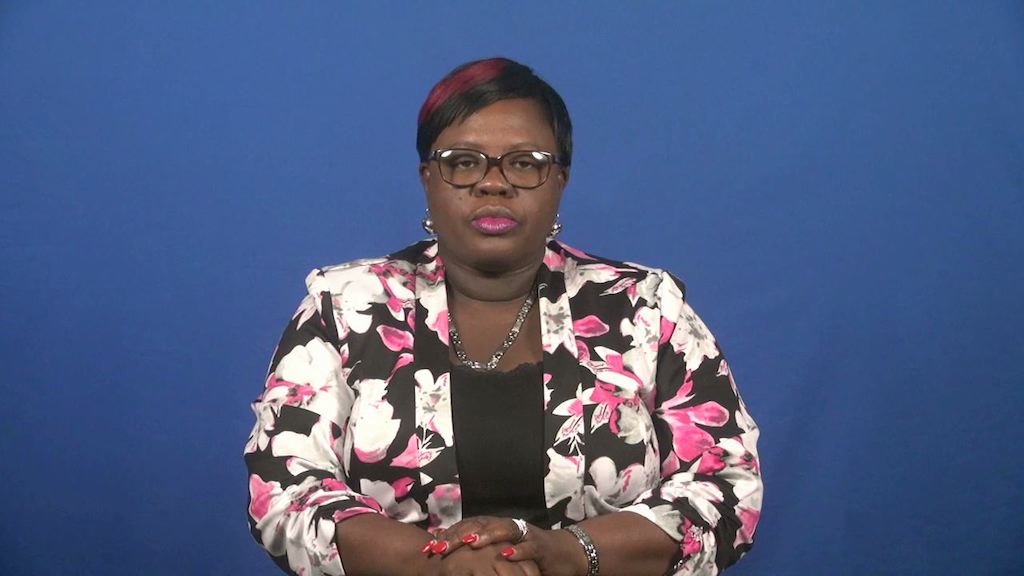Nevis Junior Minister of Health on the occasion of World Cancer Month

(NIA CHARLESTOWN NEVIS (February 04, 2018) — The following is an address by Hon. Hazel Brandy-Williams, Junior Minister of Health in the Nevis Island Administration in observance of World Cancer Day 2018.
World Cancer Day will be observed on Sunday February 4 under the theme “We Can. I Can.” This day highlights the need for collective efforts between governments, NGOs and civil society to address cancer prevention, treatment and control.
In Nevis, cancer is also one of the leading causes of illness and death, with an average of 26 new cases over the last three years. It is one of the leading causes of death along with heart disease and stroke.
In St. Kitts and Nevis, the most common cancers are breast, cervical and prostate cancers. There are many risk factors for cancer, of which 30 to 40 percent are associated with poor lifestyle practices including tobacco use, low fruit and vegetable consumption, harmful use of alcohol and a lack of physical activity. Other causes include viral infections such as hepatitis B and C which can cause liver cancer, and the human papilloma virus (HPV) which can cause cervical cancer.
In an effort to address the risk factors for cancer, the Ministry of Health, through its Public Health Department, has developed many programmes geared towards cancer prevention and control, including early detection. Healthy diet and exercise are promoted at primary schools through initiatives such as “My Healthy Plate” and “Chef Academy.” The latter programme involves a practical component as well as an agricultural element through the installation of hydroponic garden systems in some schools.
At health centres, workplaces, and in communities, health education sessions are also conducted by nurses and health educators, as well as in partnership with non-governmental organizations, including Pink Lily Cancer Care and Nevis Maternal Health Fund. These health education sessions offered at various venues are based on the National Food Dietary Guidelines and emphasize the importance of:
- engaging in moderate physical activity daily for at least 30 minutes
- consuming a diet which consists of a variety of fruits and vegetables
- reducing the consumption of sugar-sweetened beverages including sodas
- using less salty and processed foods
- using fats and oils sparingly while cooking foods
- World Cancer Day will be observed on Sunday February 4 under the theme “We Can. I Can.”
Vaccination programmes at all six health centres are also important in cancer prevention, with Hepatitis B already a part of the vaccination schedule, and the HPV vaccine, which will be introduced later this year. Condoms are also available at all health facilities and at private establishments and are effective in preventing the transmission of the aforementioned diseases, if used correctly and consistently.
Early detection is also a critical part of cancer prevention. Screening activities for cancer include Pap smears which are available at all health centres, and key in the prevention of cervical cancer. On Saturday, 27th January alone, 131 Pap smears were conducted across all health centres as part of activities for Cervical Cancer Awareness Month. This was facilitated by our dedicated Community Nursing staff.
January also saw screening activities related to prostate and colon cancer prevention and control, with 572 and 75 exams completed, respectively. These initiatives were spearheaded by Urology Associates and Dr. Spencer Amory, respectively. This was done in partnership with the Ministry of Health. Outside of these annual screening initiatives, these services are routinely provided by physicians throughout the year.
Treatment for cancer in the Federation includes surgery and chemotherapy, with access to radiotherapy available regionally and internationally. Cancer is one of the medical conditions that can be very expensive for individuals and families, particularly if one is not insured. With the Federation’s move towards the provision of universal health insurance, it is anticipated that medical care will become more affordable in the not too distant future.
I can. You can. We all can make a difference in the fight against cancer. The Ministry of Health and Gender Affairs will continue to invest in programmes that address cancer prevention, treatment and control. I urge you to take advantage of these programmes and services offered through the health sector so we can reduce the impact that cancer has on our population. Our nation’s most valuable source is our people.
Let’s make our health our priority.
